CAIN Web Service
Speak Your Piece
Exploring Controversial Issues
OFF THE WALLS
A Guide for Teachers, Youth and Community Workers
|
Politics
The clocks are bleeding now on
Public buildings. Their mottos
emblems of failure, tell us:
What the wronged gods established
no army can ever save.
from A Partial Stage by Tom Paulin
The programme draws on parallels between the political situation
in the Middle East and Northern Ireland. The choice in both settings
is portrayed as one of war or peace.
In the studio debate a young woman argues, "We have to bury
the past or we can't move on."
In the drama Ken and Anna argue and there is a confrontation between
Pat and Peter. A final sequence gives an insight into what the
characters think privately of their closest friends. |
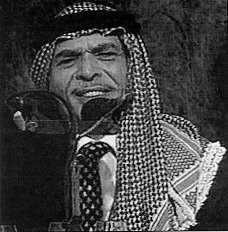 |
King Hussein at the funeral
of assassinated Israeli Prime
Minister Rabin |
Let us not keep silent. Let our voices rise high
to speak of our commitment to peace.
|
Before viewing...
- Ask participants to think about a politician or leader whom
they respect. Request volunteers to speak about the person they
have chosen and why.
- In small groups identify a list of political decisions which
affect our lives. Using the lists you may wish to undertake more
extended discussion about different levels of political decision-making
(local, national, international) and the role of politicians in
our society.
|
|
Who influences our political attitudes? |
 | - It's all about conflict here, the politics of conflict and everybody wants to know where you stand. (Kelly on the Middle East)
|
| |
 | - You want to see his da. He's a real nutter! (Billy talking about Ken)
- She hears nothin' she doesn't agree with. She knows too much. Don't ask me if she is involved, because I don 't know - I just don't know. (Aoife about Pat)
- She hates bigots, and Ii mean hates them. And do you know why? Her dad is the biggest bigot that ever walked and so is her mum. (Kate about Anna)
- After all that business with Frankie what's-his-name, he lost it, completely lost the plot. (Bob about Peter)
|
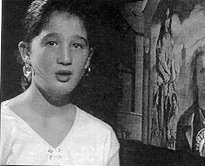 |
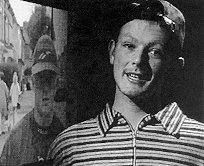 |
| She's my mate and I'm worried about her. |
He's a bit of a header, but I like him. |
| |
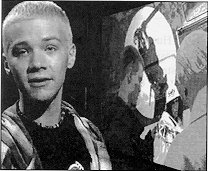
| 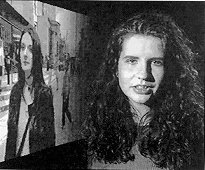 |
He's weird that way, but then who
am I to say what is weird? |
She's intelligent. She's educated.
She knows what she's about. |
 |
Activity one The quotations above and programme extracts
raise questions about who influences our political attitudes.
The activities on Worksheet 4, page 20 are designed to examine
these questions further. |
|
What are our rights and responsibilities?
|
 |
- The choice facing people here is simple - war or peace.
Do they agree to live together? Do they agree to live apart? or
Do they remain in endless conflict? (Kelly)
 | - For me the resolution is get the British out of Ireland. (male)
- If a majority of people want a united Ireland, then we can
go into one, but it doesn't mean I want to be part of that. (male)
- There are politicians who say agreement threatens no-one.
That's wrong. Agreement threatens everyone. Everyone is going
to have to give something up. (male)
- My experience of growing up has been a lack of things like
democracy, justice, equality, and I think we first of all have
to consider how we can create these... those principles are very
important to me as a woman. (female)
|
| |
 |
Activity two Consider which of the quotes above represent attitudes
which contribute to conflict and which help to develop understanding.
- Generate a list of the rights which individuals should have in every society (The United Nations declaration and other Bills of Rights might help).
- What responsibilities have we towards i) others and ii) society?
- Which of the rights apply to individuals and which apply to groups?
- Can you think of any groups in our society whose rights are ignored?
- How could the rights of these groups be protected?
|
| |
| You may wish to extend this by considering the type of clauses which could be included in a Bill of Rights for Northern Ireland.
|
|
| How can you make your voice heard?
|
 | - You don't make peace with your friends, you make peace with your enemies. (Kelly quotes Amos Oz)
|
| |
 | - You have to start at ground level, not with politicians but with people. For instance, the education system is divided.., also towns are divided geographically. (female)
- The problem you've got here is the vast majority of people who are of working age in this country can 't find work. If there were no working classes in the north, don't believe there would be an IRA for a second. (male)
|
| |
| Activity three This activity is designed to examine how young people can become active participants in non-violent social and political change.
|
| |
 |
- Identify and agree on an issue which is important to the group.
- Design a campaign which would highlight the issue.
- Prepare a presentation explaining how the campaign would be undertaken.
- Each group should present their campaign to the large group.
- Discuss whether the rights of all of the people who will be affected by the campaign have been taken into account.
|
| |
| If any group wishes to take further action encourage them to develop a plan which has a good possibility of succeeding.
|
|
Worksheet 4
Politics
Quotes
- Which characters from the programmes made the statement below?
- Who were each of them talking about?
- How true to life do you think the four main characters in
the series have been?
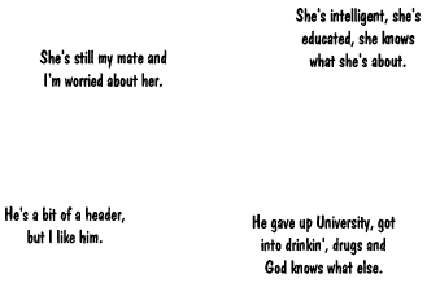
|
|
Personal Maps
This activity is designed to help you think about the different
influences on the way you think about politics.
- Draw a small circle in the middle of a blank page. This represents
you.
- Put 'X' marks on the page to represent other people that
have influenced how you feel about politics and violence in Northern
Ireland. Those who influence you most should be drawn closest
to the centre of the page (you).
- Use a second colour to add events which have been influential.
- Use a third colour to add organisations which have
been or are influential.
- Discuss these diagrams in small groups.
|
Return to Contents
|